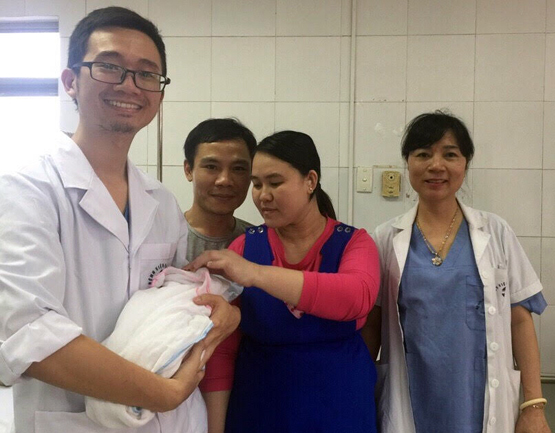Baby born from egg-freezing technology in Vietnam
- Ministry of Health strengthens border quarantine to prevent H5N6
- US institute: Vietnam ranks first on health governance index
- Some 5,200 health centers discharge “unprocessed” wastewater into environment
- Ministry of Health proposes concrete regulations to better control the quality of homemade alcohol
The success has opened the door to motherhood of Vietnamese women who are unmarried, old or receiving chemotherapy for cancer treatment.
According to Do Hoai Thu, in 2013 she was diagnosed with polycystic ovary syndrome, or low fertility.
 |
| The success has opened the door to motherhood of Vietnamese women who are unmarried, old or receiving chemotherapy for cancer treatment. |
After that, Thu twice experienced the IUI procedures but still failed. Not only being treated by modern medical technologies, Thu and her husband also sought herbal medicine. However, their efforts were worthless. Recalling that period, Thu said: " I felt desperate. Then my husband comforted me a lot. "
But everything changed when Thu came to the Postal Hospital. At the hospital, Thu had her eggs frozen in June 2016 and became pregnant though in vitro fertilization using her husband’s sperm.
Finally, on March 27, 2017, Thu’s baby girl, weighing 3.2 kg, was born healthy.
The technology of freezing eggs has been brought to Vietnam since 2003 by Tu Du Hospital, Ho Chi Minh city. However, Thu’s baby is the first-ever case in Vietnam where a baby was born with the support of the technology.
According to Dr. Vuong Vu Viet Ha of the Postal Hospital, Thu's success will bring a ray of hope for many Vietnamese women with their female fertility problems as well as has opened the door to the application of the freezing egg technology to other patients.
“In some cases, this technology bears great humanitarian implications, especially when women with cancers want to have their own babies before undergoing chemotherapy and radiotherapy” said Dr. Ha, adding that the method will help them preserve eggs. When the cancer treatment is finished, they can still have children as normal woman, thanks to the technology.”

